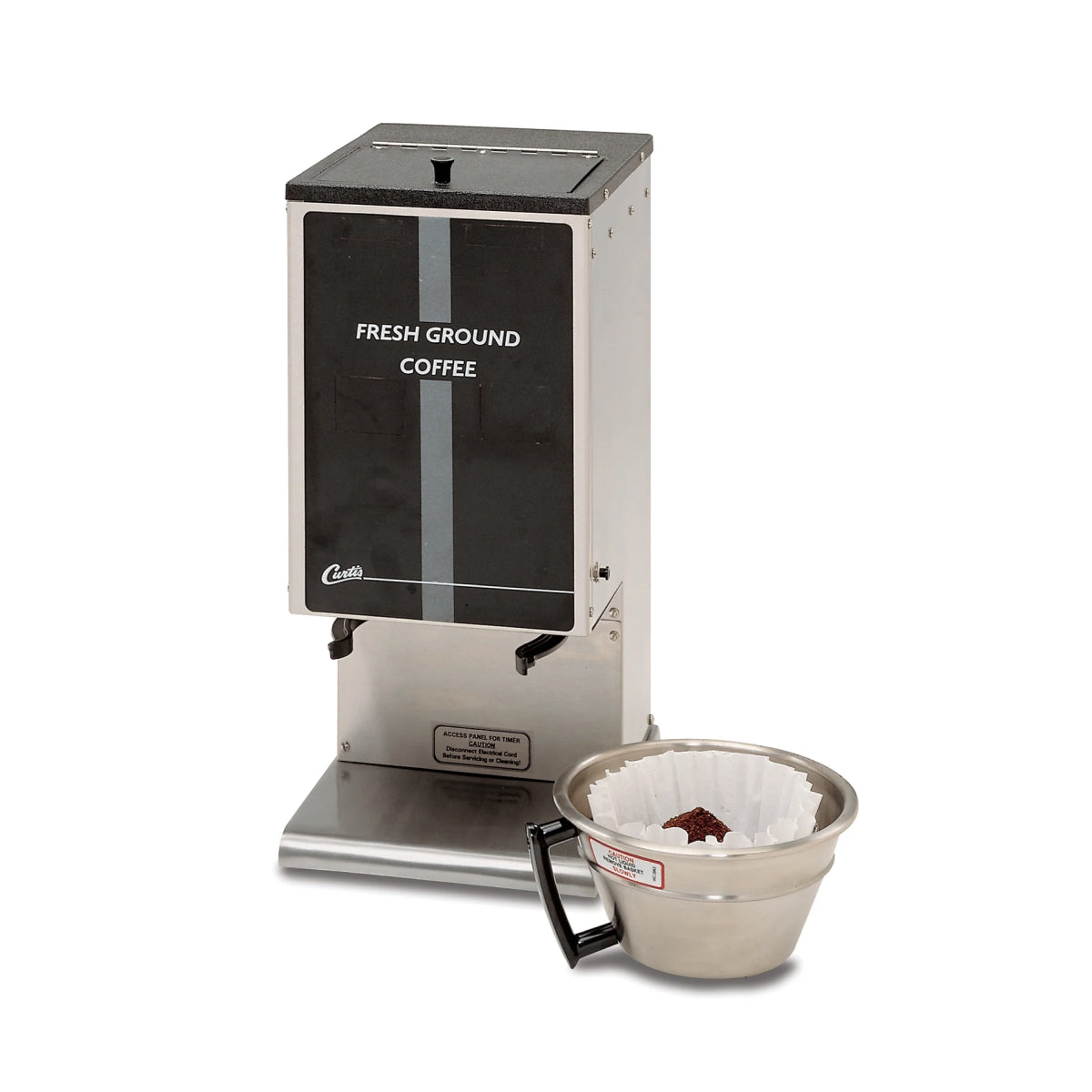Industrial Coffee Grinder: Pros, Cons, and Features to Evaluate
Industrial Coffee Grinder: Pros, Cons, and Features to Evaluate
Blog Article
Industrial Coffee Mill Guide: Boost Performance and Quality
In the affordable landscape of coffee manufacturing, selecting the right commercial coffee grinder plays a crucial role in improving both effectiveness and product top quality. Comprehending the subtleties of numerous grinder types and vital features-- such as adjustable work setups and robust building-- can considerably affect the last flavor profile of the coffee. The optimization of the grinding process, paired with persistent upkeep, is essential for sustaining efficiency over time. As we discover these critical elements, it ends up being noticeable that the implications prolong beyond simple devices selection, influencing total business success in methods that call for closer assessment.
Understanding Grinder Kinds
When selecting a commercial coffee mill, comprehending the various kinds offered is important for optimizing both taste extraction and functional efficiency. The 2 main types of mills are blade grinders and burr mills.

Inevitably, choosing the appropriate sort of mill is integral to preserving top quality and efficiency in coffee manufacturing, making it crucial for businesses to invest in high-quality burr grinders for optimum outcomes.
Key Functions to Take Into Consideration
Selecting a commercial coffee mill needs mindful factor to consider of several essential attributes that can considerably affect both efficiency and the overall coffee experience. One of the main facets to evaluate is the grinding system. Burr mills are usually preferred over blade mills, as they provide a constant work dimension, which is crucial for ideal extraction and taste.
One more crucial attribute is the mill's capacity. A flexible mill with numerous setups permits you to customize the work dimension to various developing methods, improving the coffee's taste account.
The construction material likewise plays a role in longevity and maintenance. Stainless-steel components commonly supply long life and are less complicated to clean, which is important for keeping hygiene standards. Assess the grinder's noise level, especially in an active coffee shop or production atmosphere, where excessive noise can be turbulent. Purchasing a mill that balances these features can substantially boost both operational effectiveness and the quality of the coffee offered.
Optimizing Grinding Refine
To accomplish the most effective cause coffee preparation, maximizing the grinding process is necessary. The work size substantially affects removal, flavor, and general high quality of the made coffee. Various brewing methods need details work sizes; as an example, espresso demands a great work, while French press necessitates a rugged structure. Recognizing the partnership between grind size and brewing technique is the very first step in optimization.


In addition, monitoring the grinding speed can optimize the process. Slower grinding often produces less warmth, maintaining fragile like this tastes and scents. On the other hand, quicker grinding might produce extreme warm, negatively affecting the coffee's quality.
Maintenance and Care Tips
Correct maintenance and care of commercial coffee mills are essential for ensuring optimal performance and long life. Regular cleaning is the foundation of upkeep; deposit buildup can affect flavor and grinding performance. It is suggested to cleanse the grinder after each use, cleaning down the outside and eliminating any coffee premises from the burrs.
Furthermore, check the grinding burrs for deterioration. Dull burrs can endanger work consistency, so they ought to be replaced as required. Industrial Coffee Grinder. Periodically adjusting the mill is likewise essential, as this maintains the wanted grind size for various developing techniques
Lubrication of relocating components should be carried out according to the producer's specifications, as this reduces rubbing and prolongs the life of the tools. It is necessary to make use of food-grade lubricating substances to make sure safety and conformity with health guidelines.
Lastly, keep the mill in a dry and stable environment to stop rust and rust. By sticking to these maintenance and treatment tips, operators can boost the efficiency of their industrial coffee mills while guaranteeing high-grade outcome and expanded functional life.
Roi Analysis
Reviewing the return on investment (ROI) for industrial coffee grinders is important for organizations seeking to optimize their coffee production abilities. A detailed ROI analysis helps identify the monetary feasibility of spending in high-grade grinders, allowing businesses to weigh the initial costs against prospective gains.
To carry out a detailed ROI analysis, companies ought to think about a number of crucial aspects. Assess the purchase price of the grinder, including installation and any required adjustments to existing facilities. Next off, determine operational costs, including energy intake, upkeep expenditures, and labor effectiveness improvements. High-performance grinders usually bring about minimized grinding time and enhanced throughput, which can dramatically enhance productivity.
In addition, think about the effect on item high quality. Industrial Coffee Grinder. Superior grinders generate a more regular grind dimension, which can enhance taste profiles and consumer contentment, inevitably driving sales. By enhancing the quality of the final item, services can validate higher rates, resulting in increased income
Conclusion
In recap, a commercial coffee mill plays an essential duty in improving both performance and product high quality within coffee production. By choosing premium burr mills geared up with crucial features such Discover More as flexible work settings and resilient building, companies can make certain optimal flavor extraction. Regular maintenance is important for maintaining mill efficiency and making best use of consumer satisfaction. Ultimately, the tactical investment in a reputable grinder adds substantially to improved income and competition in the coffee market.
In the affordable landscape of coffee manufacturing, choosing the right commercial coffee mill plays an essential function in enhancing both efficiency and item top quality. The 2 key kinds of grinders are blade grinders and burr grinders. Within the burr mill group, there are level burr grinders and conical burr mills, each with its benefits. Burr grinders are generally favored over find blade mills, as they supply a consistent work size, which is essential for ideal removal and taste.
In summary, a commercial coffee mill plays a crucial duty in enhancing both efficiency and product high quality within coffee production.
Report this page